IB History SL Partition of India Key Terms
1/40
There's no tags or description
Looks like no tags are added yet.
Name | Mastery | Learn | Test | Matching | Spaced | Call with Kai |
|---|
No analytics yet
Send a link to your students to track their progress
41 Terms
Communalism
An allegiance to one’s own ethnic group rather than to the wider society. Causes conflict and violence between ethnic groups and cultures.
Significance: Encouraged by the British, A major cause for violence during partition, caused conflict between Muslims and Hindus in India.
Amritsar Massacre
British troops killed hundreds of Indians attending a work stoppage protest.
Significance: Was a turning point for Indians and Congress to turn against the British and support full independence.
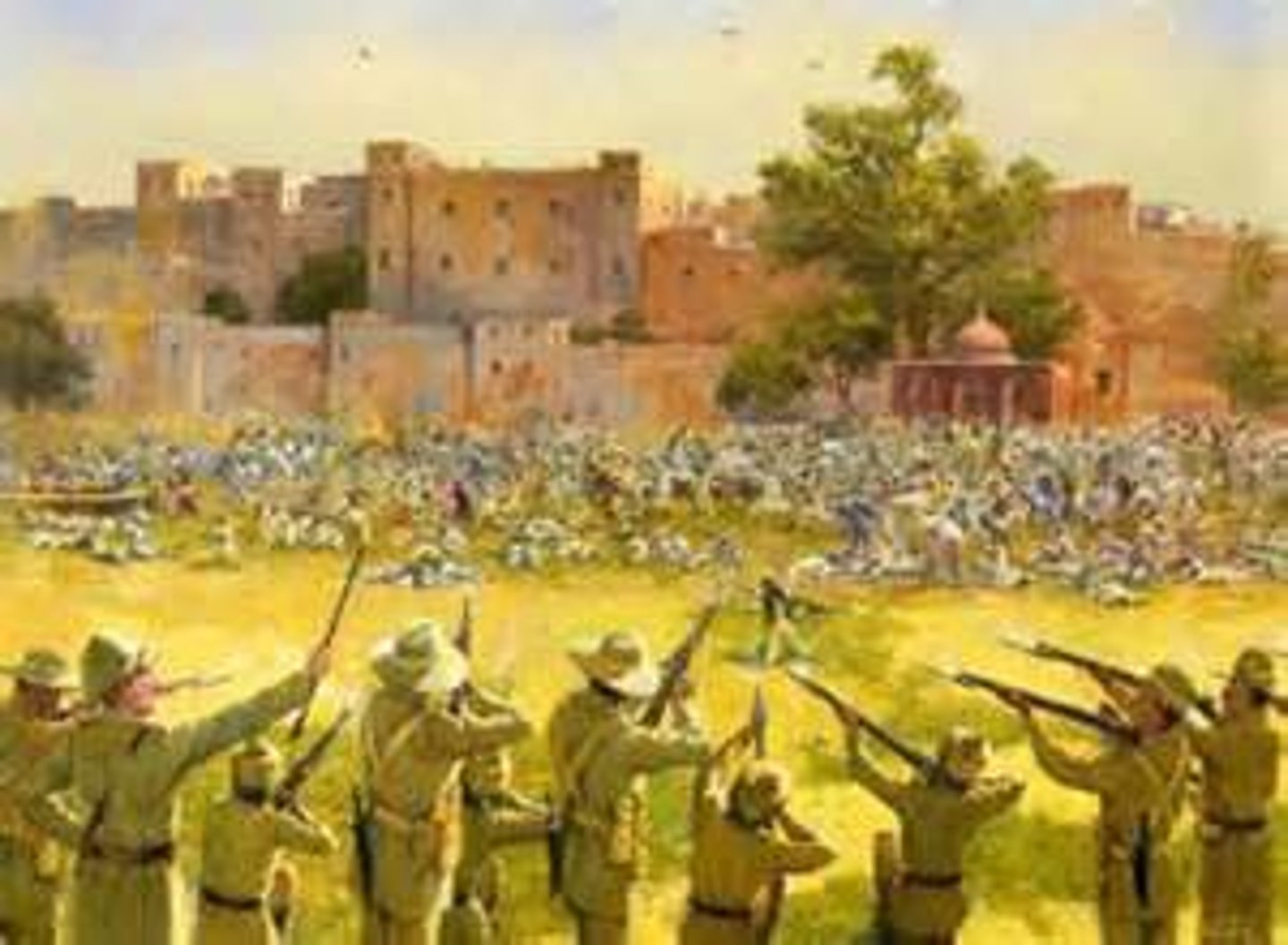
British East India Company
A British trading company that was created to compete with the Dutch.
Significance: It controlled most of India during the period of imperialism/colonialism
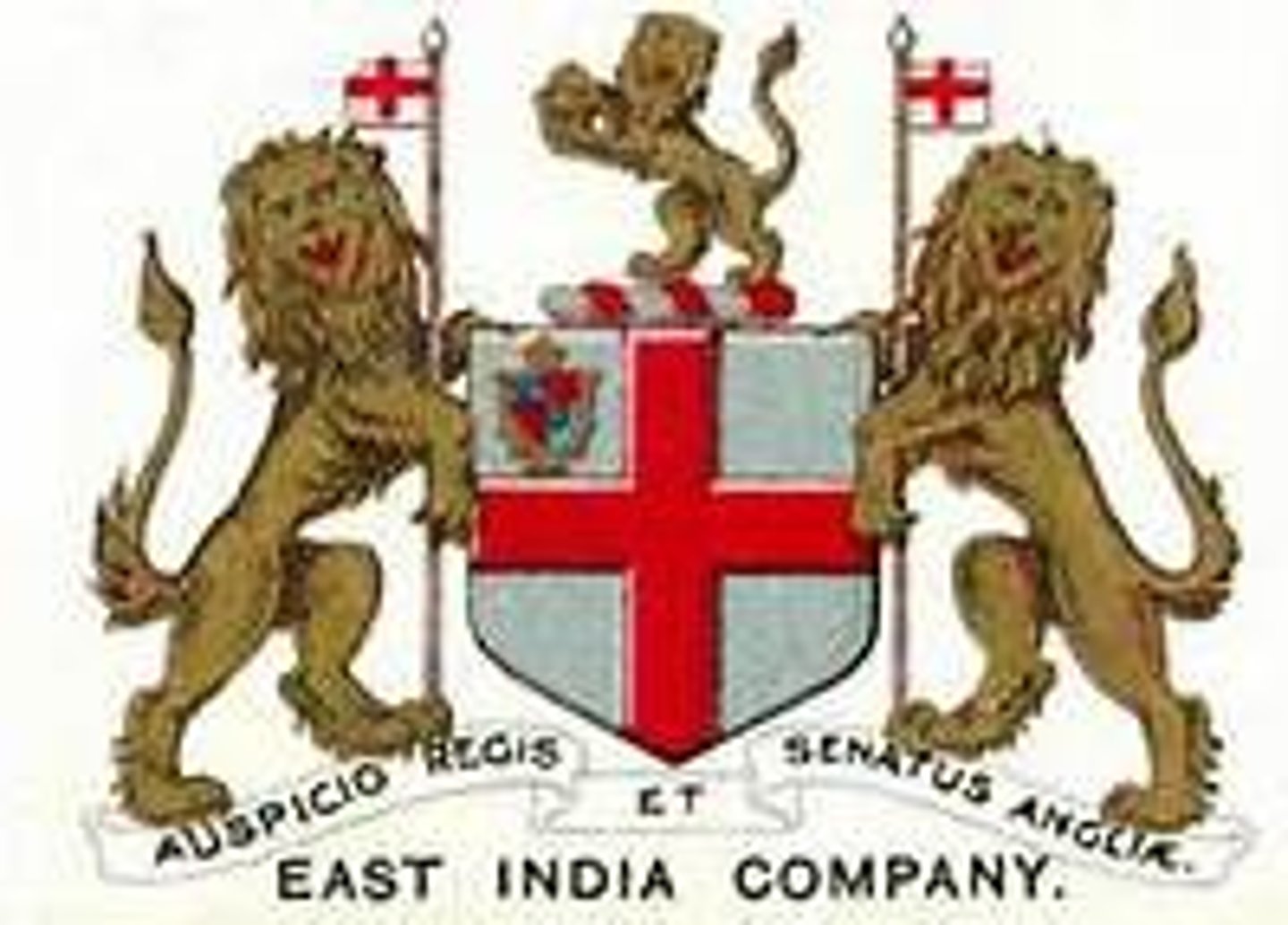
Caste System
A way to divide the classes, based on hereditary status, marriage, religion, etc.
Significance: Used by the British to "divide and rule"; created tension among groups in India.
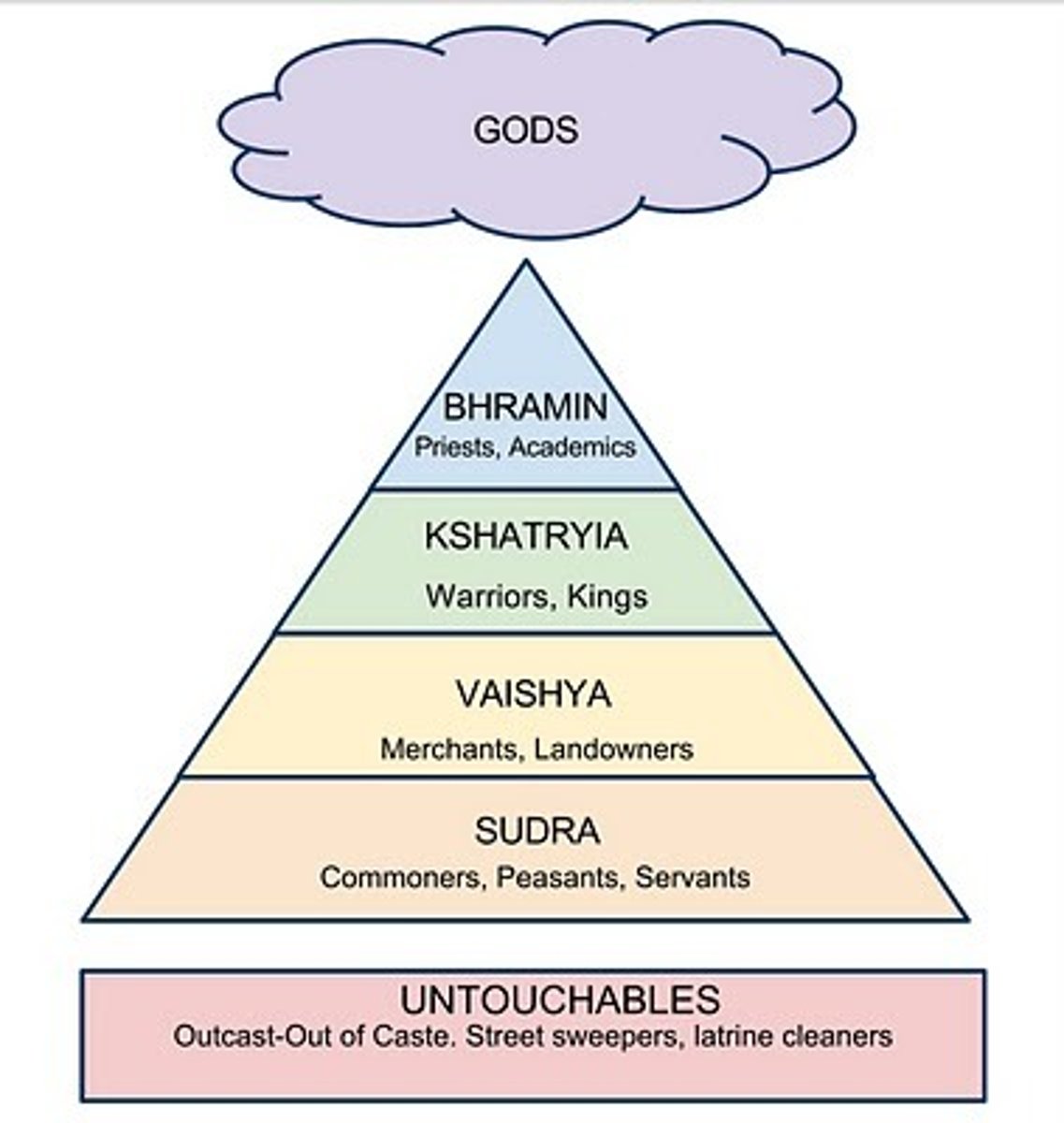
Dominion Status
Form of British colonialism, colonies have the right to self governance, still part of empire and susceptible to British influence.
Significance: Gandhi and other separatists first fought for this, then rejected it after t was offered too late.
Cripps Mission
British government offered (delayed) independence to India if they supported the U.K. in WWII.
Significance: The INC wanted full independence. Failed because it was seen as too extreme by the British and not extreme enough by the INC.
Reginald Dyer
British General, responsible for Amritsar massacre, ordered troops to block exits to square then ordered to open fire on 5000+ civilians, showed no remorse and celebrated+given pension upon return to England.
Significance: Massacre caused mass outrage and led to more protests and resistance.
Ethnic Cleansing (as it relates to Partition of India)
Result of the partition, Muslims in India were forced to immigrate to Pakistan, Hindus in Pakistan were forced to immigrate to India, Muslims commonly attacked Hindu groups leaving Pakistan, Hindus commonly attacked Muslims leaving India.
Significance: Was a direct result of the poorly executed partition, created much of the animosity that still exists today.
Mughal Empire
Mostly Indian-Persian cultures/Muslim, but was tolerant of other religions. Led by Akhbar and Aurangzeb.
Significance: Controlled India until Britain stepped in and took over.
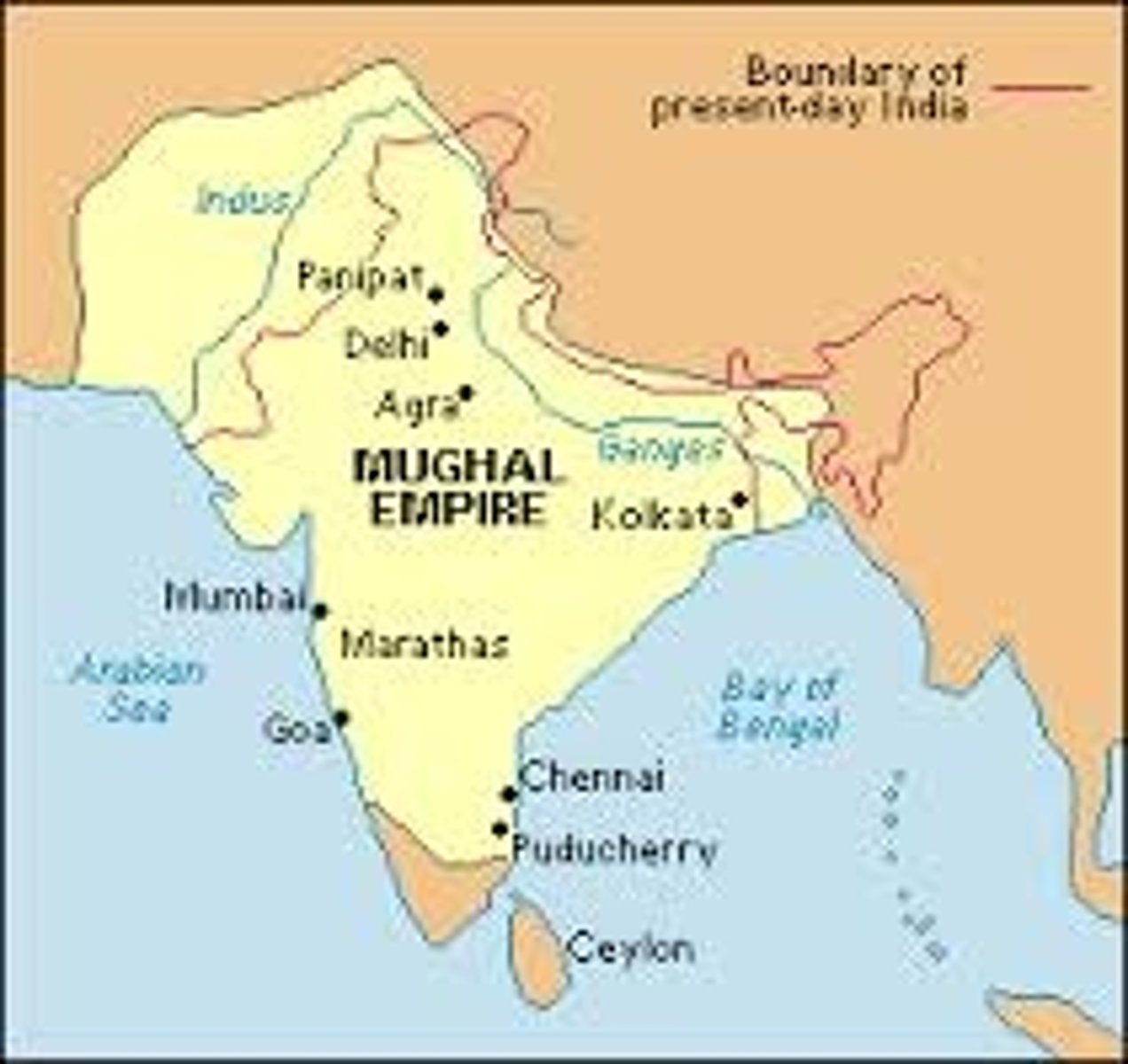
External Factors for Decolonization
WW1+WW2 weakened the British empire and their military strength, Mass social movements across the world that opposed colonialism, US and USSR’s opposition to colonialism and push for decolonization.
Significance: Led to the rise of local independence and nationalist movements in India,
Imperialism/Colonialism
The ideology that believes in some nations extending power over other nations/peoples.
Significance: Britain colonized India as a result of wanting power of the people and resources in India.
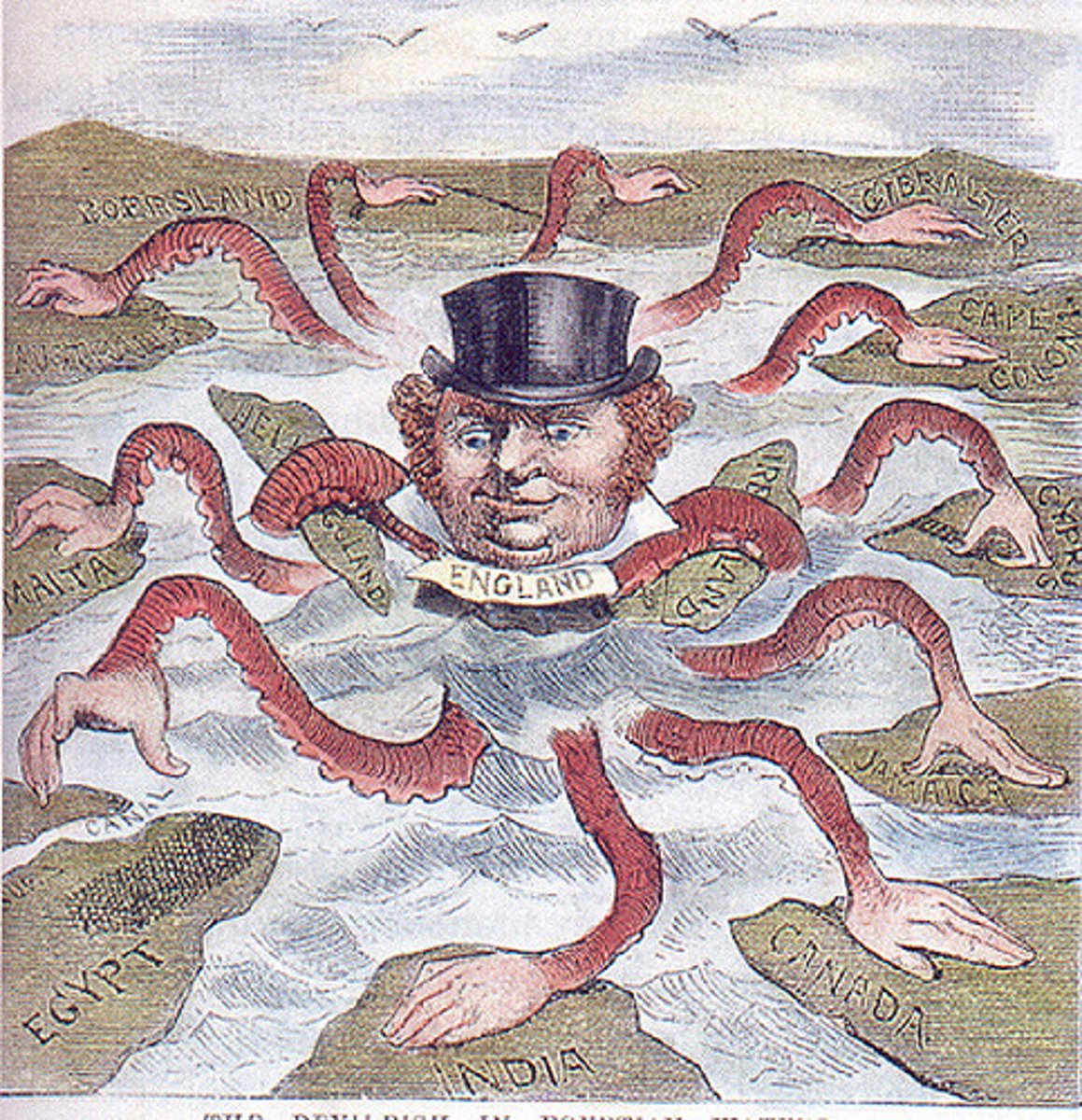
Indian National Congress
An Indian nationalist group (Hindu). Originally was elitist and conservative, but was increasingly pushed left and became more representative.
Significance: Pushed for a unified Indian Independence
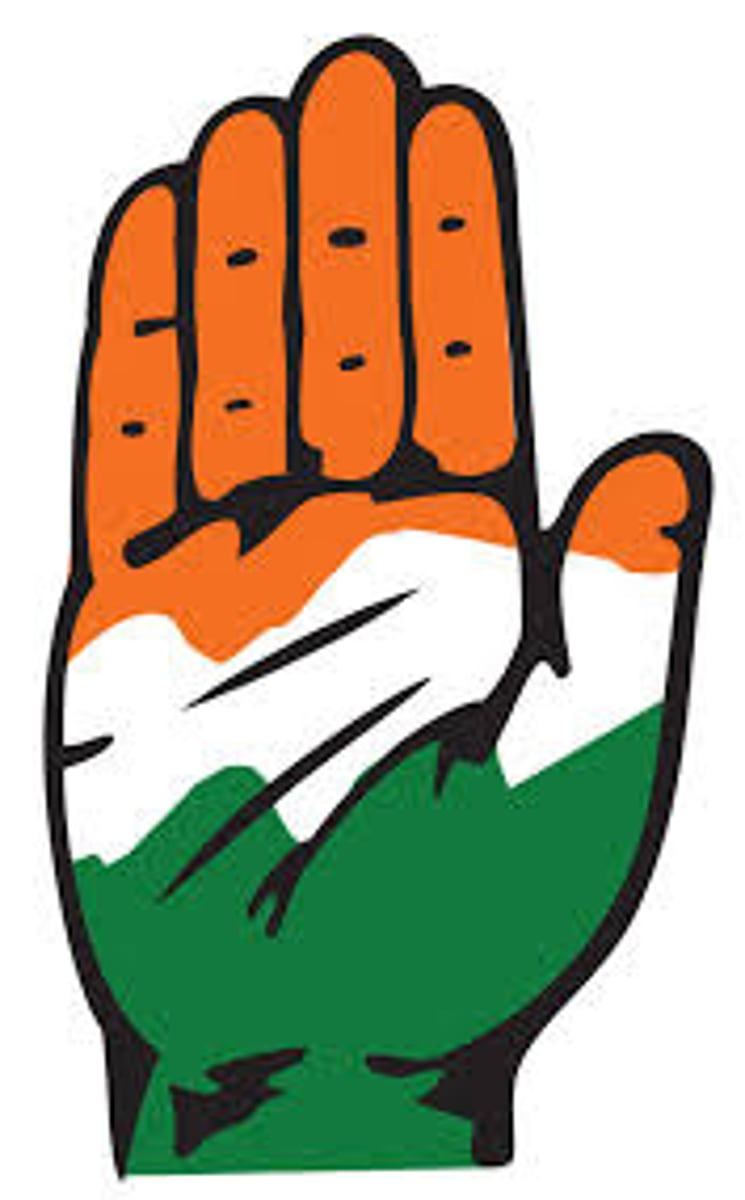
Muhammad Ali Jinnah
The main leader of the Muslim League and briefly was the first leader of Pakistan.
Significance: Fought for the 2 state solution. Disagreed with Gandhi's call for unity.
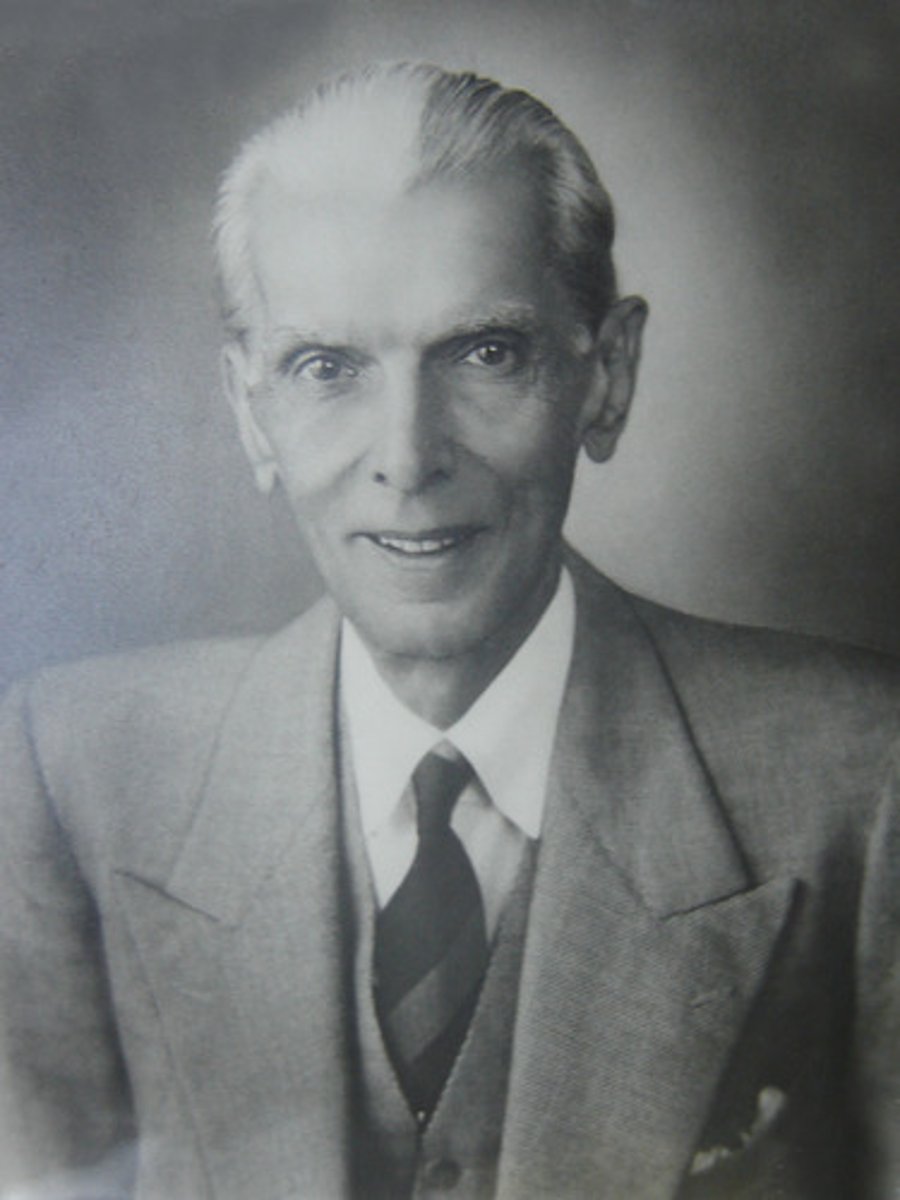
Militarism
The building up of the military, even when there isn't a war.
Significance: Intimidates other countries and makes other countries militarize as well. Popular for countries like the U.K. and the U.S.
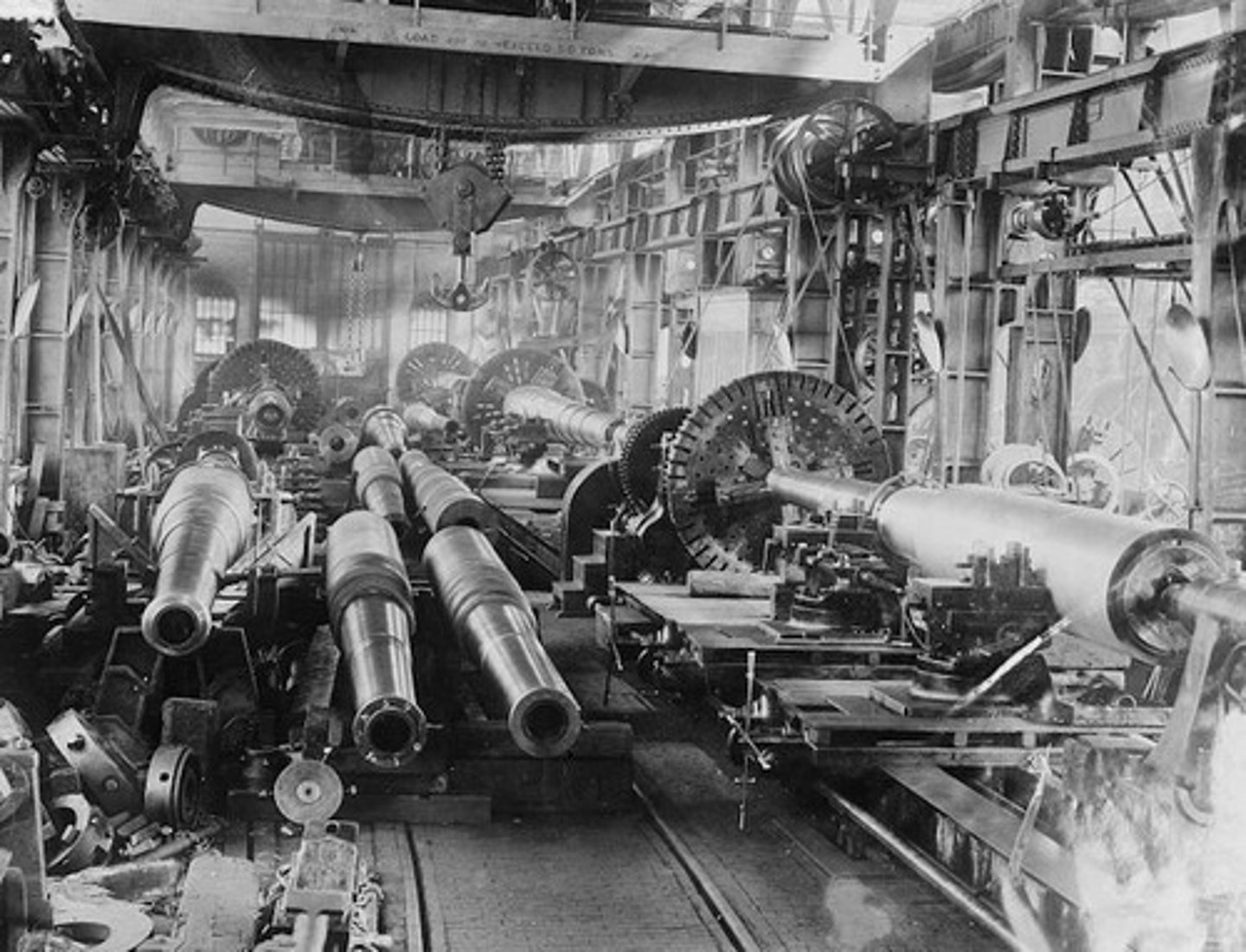
Louis Mountbatten
The last viceroy of India and was sent to facilitate the handover of power to India after WWII.
Significance: Opted for the creation of two states.
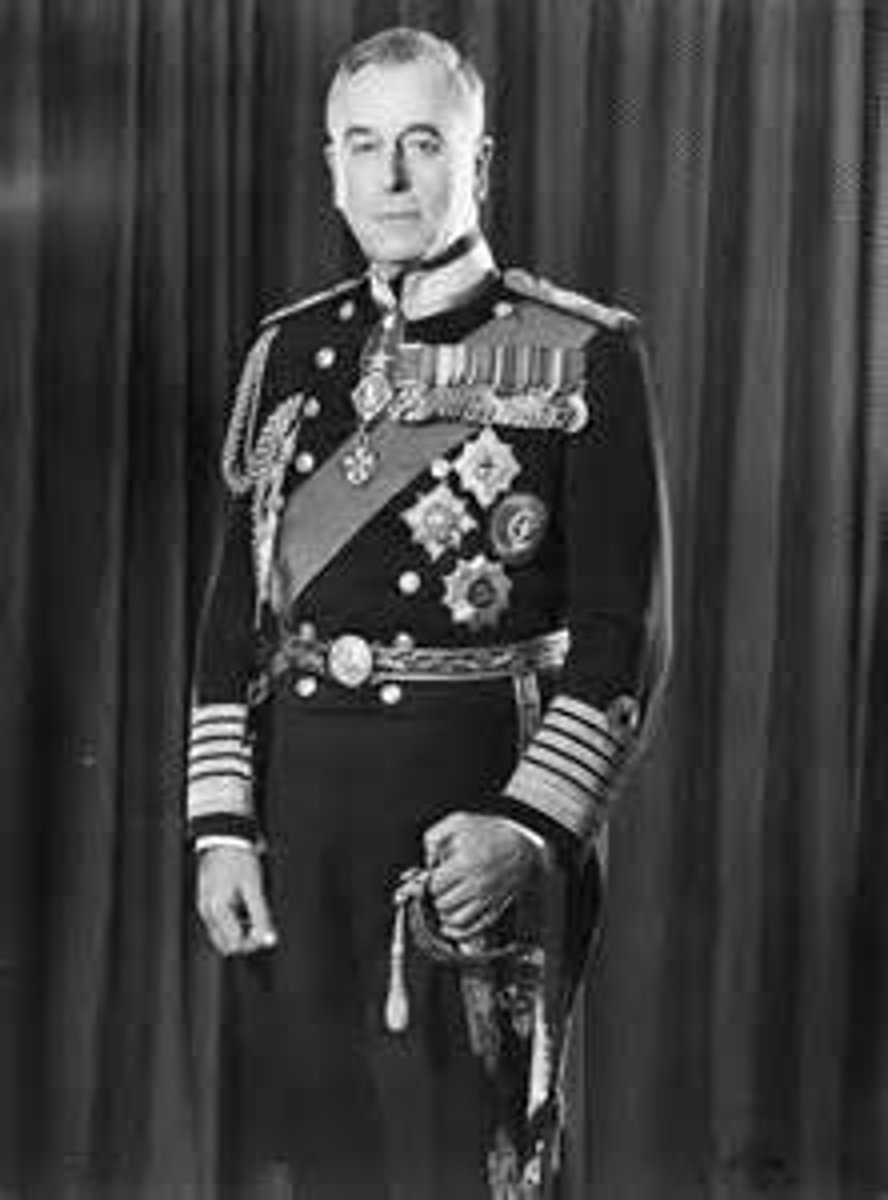
Muslim League
A league that helped protect the minority of Muslims in India.
Significance: Used as an "alternative pressure group" by the British. Fought for independence but with the two state partition to protect muslims.
Nationalism
Conflict within countries about sovereignty. Promotes the interests of one nation, sometimes in the name of independence.
Significance: Indian nationalism led to independence and the partition.
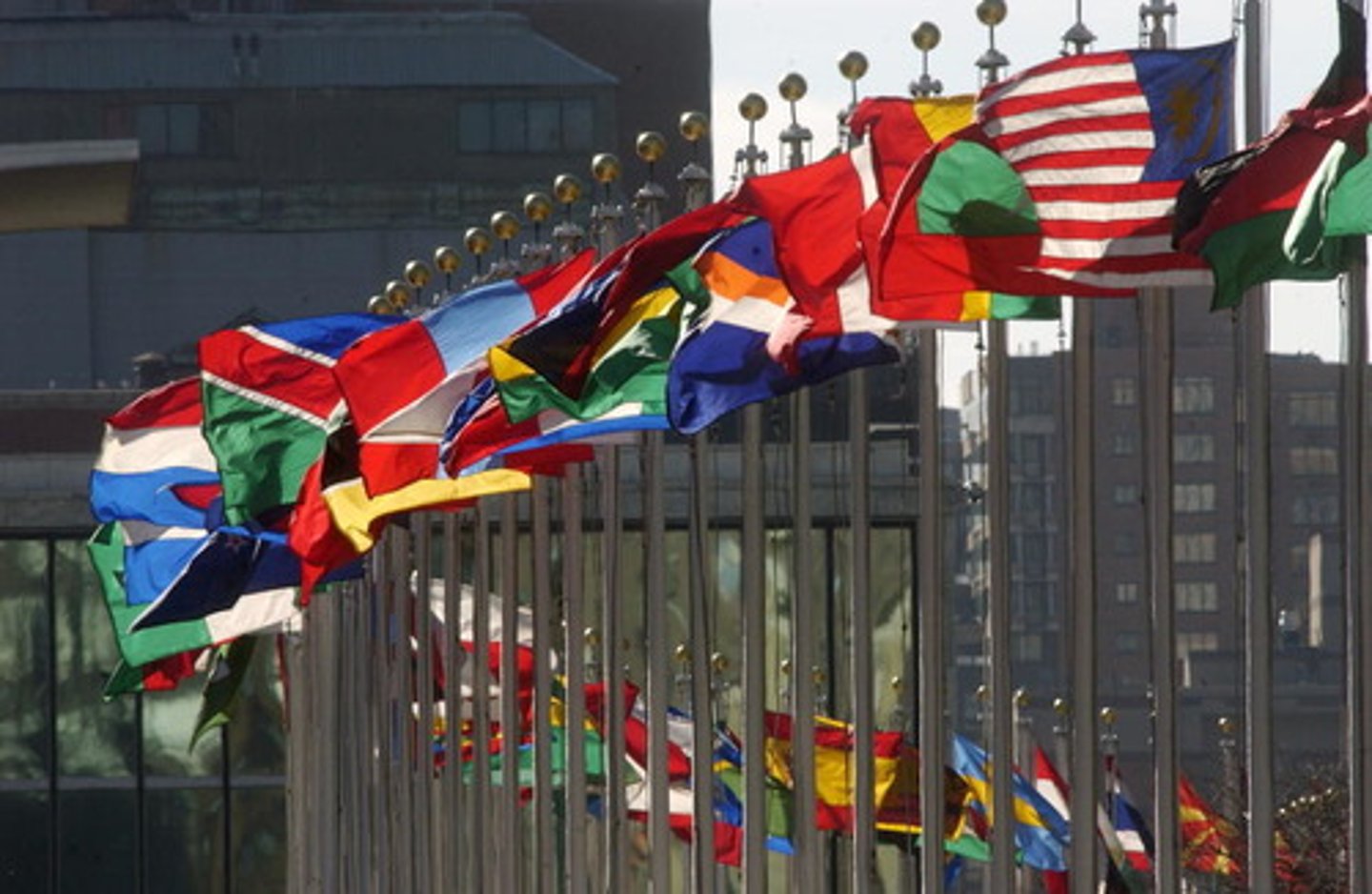
Jawaharlal Nehru
Principal leader of Indian independence movement. Was the first prime minister of India after its independence.
Significance: Called for complete self-government for India.
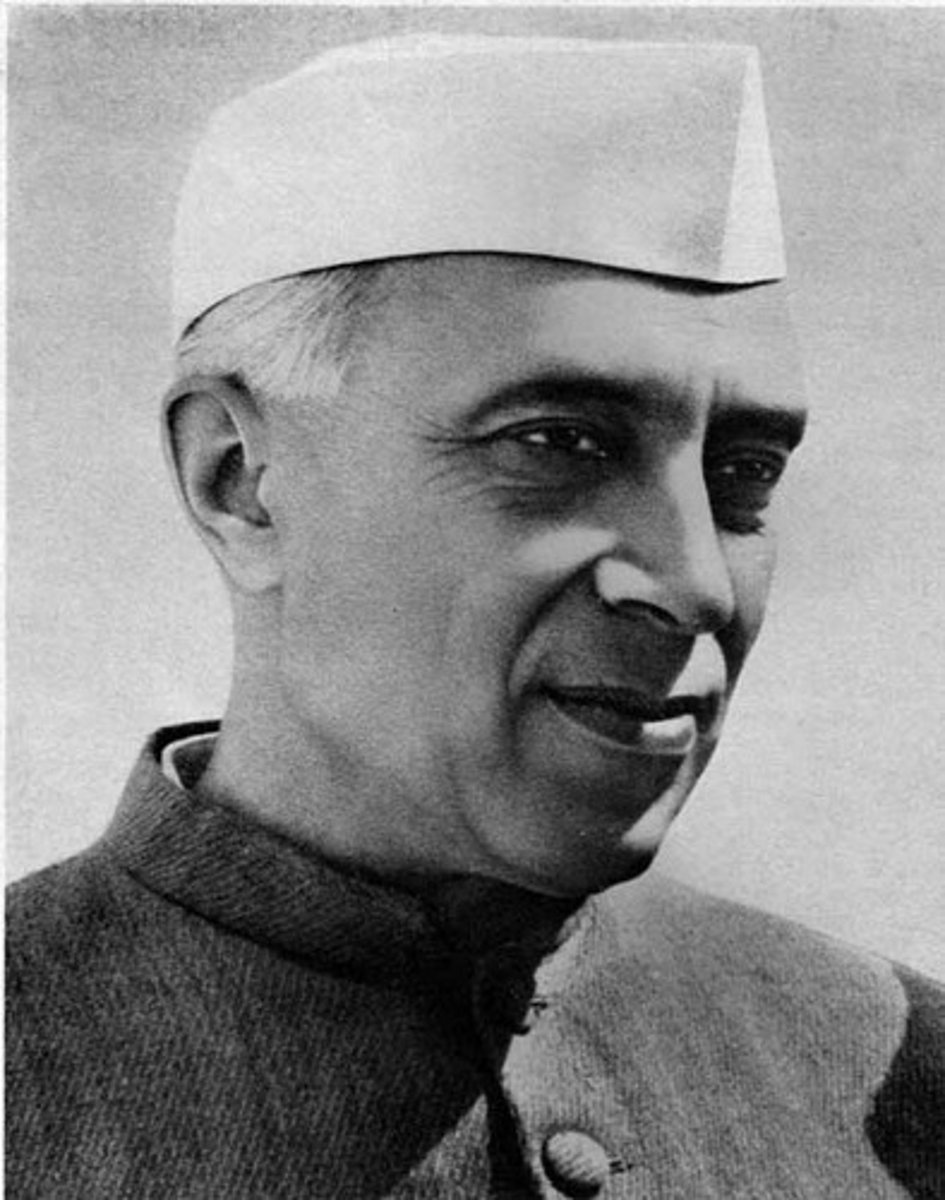
Extractive colonialism v. Settler colonialism
Extractive colonialism: Country exploited for natural resources, wealth, labor, benefit colonizing power
Settler colonialism: Native population displaced by settlers, form permanent settlement there
Significance: India under extractive colonialism from the British empire, Exploitation created want for resistance and rebellion
Neo-colonialism
A new form of colonialism. Not quite colonization, but a tight alliance where one is reliant on the other.
Significance: Britain did not rule with neo-colonialism.
The (British) Raj
The imperialist rule of the British crown in colonized India after the Mughal Empire.
Significance: Cause of Indian colonization and exploitation.
The Salt March
Gandhi led a march to the sea in protest of the tax on essential salt. He collected a piece of natural salt, breaking the law and inspiring other Indians to perform the act of civil disobedience.
Significance: Created talk in London to ease regulations/control and proved the power of peaceful protest.
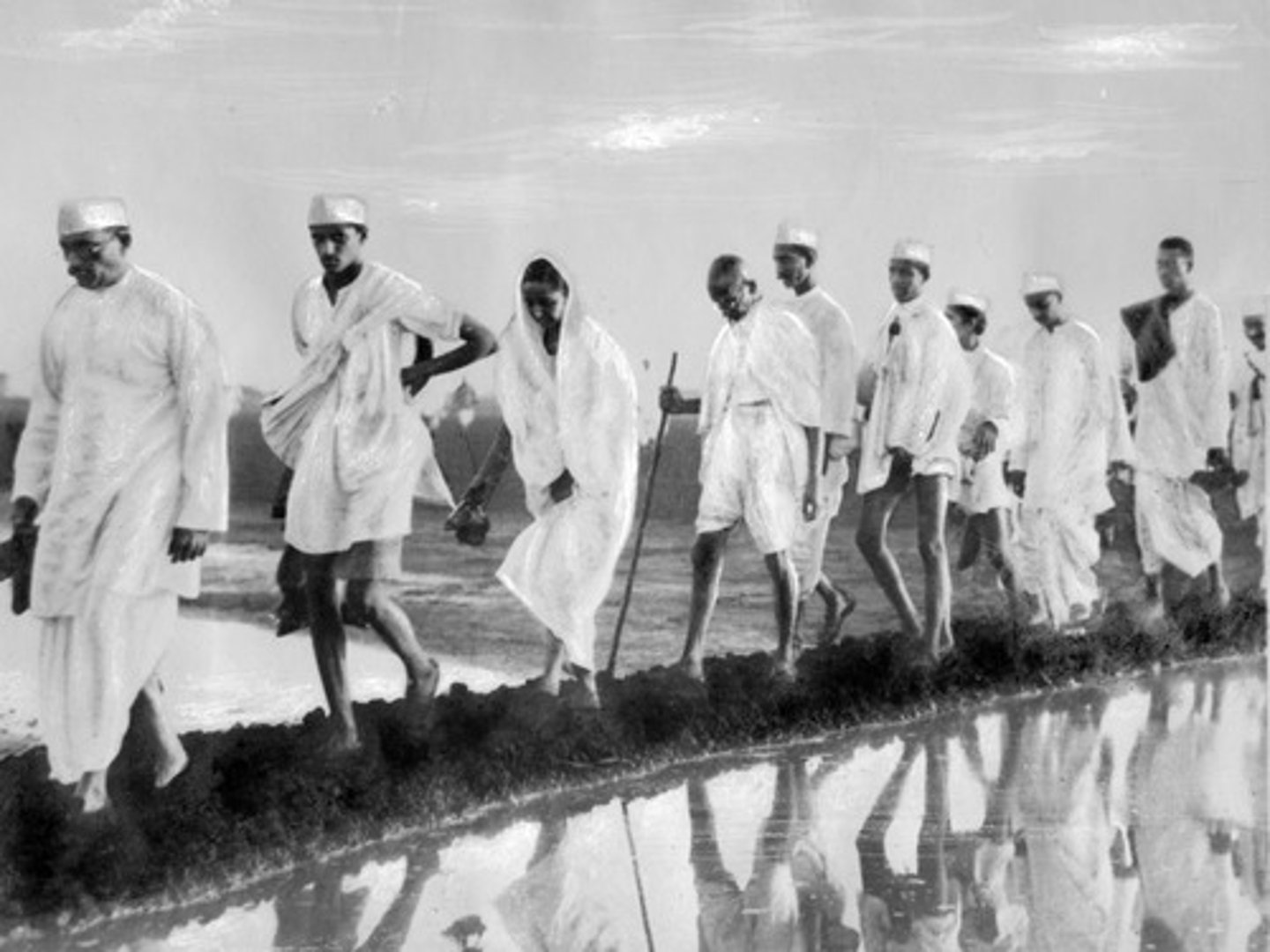
Satyagraha
Gandhi's ideology that says we should bring about change through peaceful actions.
Significance: Used to protest British control. Gained global media coverage and sent a strong message to the British without violence.
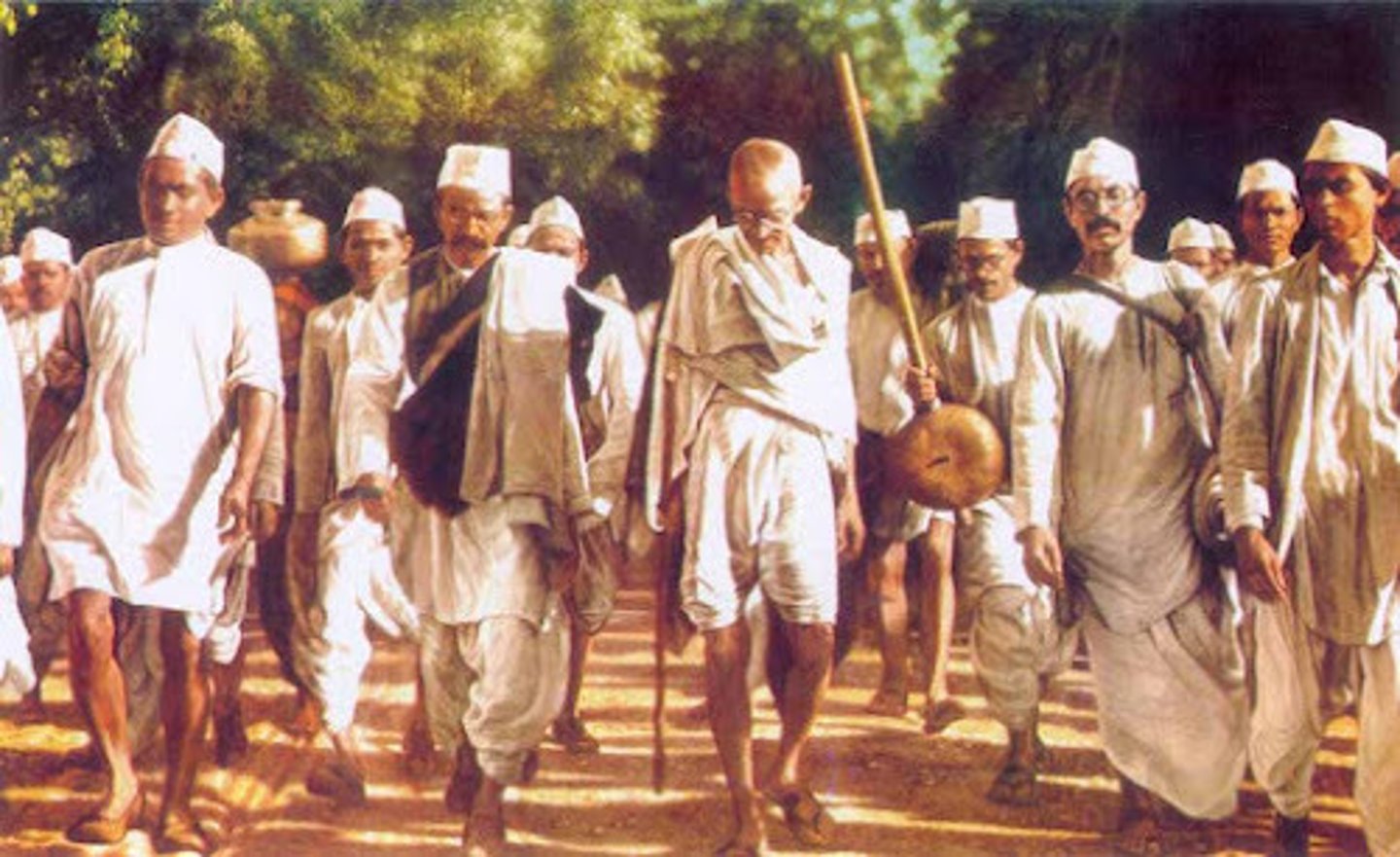
Sepoy Mutiny/Great Revolt of 1857
Indian uprising against the British rule and the BEIC caused by the refusal to use Enfield rifles for religious reasons
Significance: Led to the British gov. taking over the BEIC and eventually the full colonization of India. Soured relationship between Indians and British.
Swaraj/ purna swaraj
Swaraj: Hindu word meaning "Self rule"
Purna Swaraj: Hindu word meaning “total self rule”
Significance: The INC called for swaraj instead of purna swaraj because they were not completely opposed to being attached to the British government initially.
First World War & India
Many Indians recruited to fight for the British empire in Africa and Europe. There, many were treated better by British citizens than they had been.
Significance: Returning home after experiencing better treatment by British, caused resistance and led to rebellious acts when treated poorly again.
Total War
The government puts all hands on deck, the economy changes to a wartime economy, and the aim is for total victory.
Significance: WWI and WWII were total wars, meaning Britain needed to call for Indian participation and led to more exploitation of India.
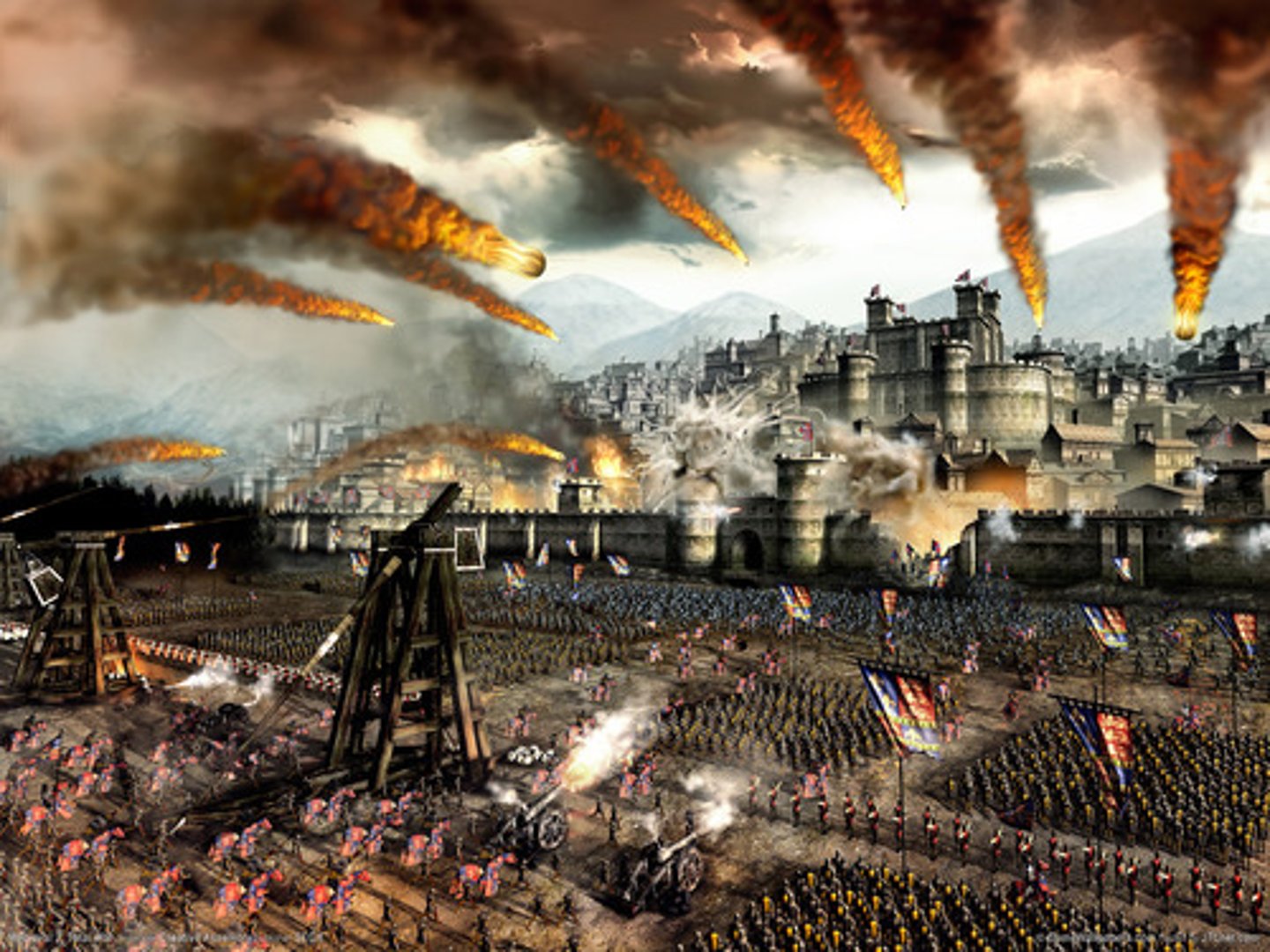
Viceroy
Highest official in the colonial administration and was essentially a placeholder for the British monarch in India (but they still had limited power).
Significance: The ultimate example of the British monarchy being forced on India.
Mahatma Gandhi (aka - Mohandas K. Gandhi)
Lawyer from middle class family, part of INC, believed heavily in nonviolence and non violent resistance (satyagraha)
Significance: Influential in resistance movement, inspired others to non violently resist.
Ghadar Movement
Political movement founded by expatriate Indians in North America to end British rule in India, Factions along Columbia River, Failed to convince Raj to succeed from empire during WW1, led to severe repercussions to members across the world.
Significance: Influenced Indian rebellion and inspired resistance and nationalism
Government of India Act (1919 & 1935)
1919: Act to give provinces rights to self governance while still being under British control.
1935: Act to give further independence to India while maintaining British influence, seen as too little too late, rejected by most.
Significance: Result of resistance from Indians,1935 act later provides basis for Indian constitution.
Hindu Nationalism
Hindus had majority over Muslims, had more political power and differences between two groups caused political and social divide, Hindus didn’t want to fight for Muslim goals.
Significance: Hindu nationalists a large part of reasoning for partition, created animosity that led to cultural genocide during partition.
Internal Factors for Decolonization
British empire exploited India for resources and labor, unfairly governed through Raj, suppressed India economically to support empire, general discontent with British
Significance: Created the want for independence, led to the creation of the Indian National Congress
Kashmir (as it relates to Partition of India)
Kashmir a princely territory, mostly muslim, not designated to India or Pakistan in partition, Source of violence and conflict between countries even today, has tried to join India.
Significance: Another example of poor British partition, shows differences and similarities between groups that have existed since colonization.
Morley-Minto Reforms (Indian Council Acts of 1909)
Acts that created more involvement of elected Indians in the government, movement towards independence, created religious exclusivity in candidates to divide population.
Significance: Divided the population by religion, creating animosity between groups.
Partition of India/ Pakistan
British government creation of two states, marked end of colonization, beginning of bloody-violent period, created two states separated by religion.
Significance: Marked end of colonialism, independence, created most modern day issues between India and Pakistan
Princely States/ Provinces
Mostly independent states ruled by monarchs, acknowledge they are under the British crown, indirect colonization, British still partially controlled government.
Significance: Kashmir- princely state, still creates conflict, other princely states made part of India/Pakistan in partition.
Quit India Movement
Movement by INC/Gandhi, mass civil disobedience campaign, successful, called for self rule.
Significance: showed British how continued rule was unsustainable, influenced decision to decolonize.
Cyril Radcliffe
British citizen, never been to India, decided borders for partition based off outdated maps and inaccurate censuses.
Significance: Led to mass migration of millions to designated religious states, caused widespread violence across entire subcontinent and further animosity between religions.
Rowlatt Act (Anarchical and Revolutionary Crimes Act of 1919)
Law passed by British, allowed arrest and detention of suspects without trail, repealed in 1921, caused mass protests that it was trying to eliminate.
Significance: Created more want for independence in India, ushered in non violent resistance.
Swadeshi & Homespun Movement
Indian nationalist movement, boycott British goods, services, institutions, law courts, promote domestic ones
Significance: Beginning to non violent resistance, hurt British economically, first movement to have real impact, fostered nationalism.